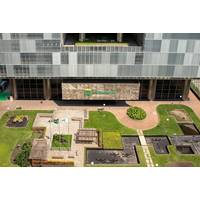U.S. to Export Large Ethanol Volume to Brazil
Platts estimates the United States will ship around 1.7 billion liters of ethanol to Brazil in 2018, compared to a projected 1.8 billion liters this year.
"Brazil will continue to be a net importer of ethanol next year, at levels similar to this year, as local production remains stagnant," Beatriz Pupo, a biofuels analyst for S&P Global Platts, said at a presentation in Sao Paulo on Wednesday.
The United States is expected to increase its share of the ethanol market in the Brazilian North/Northeast region to around 40 percent in 2018 versus 30 percent in 2017, she said.
All the U.S. ethanol exports go to that region in Brazil, where local production is not enough to meet demand.
Pupo said Brazil center-south mills will be unable to up supplies to the northern part of the country as there is no new production capacity and demand in central Brazil has risen due to a widening price advantage for ethanol compared to more expensive gasoline.
The projected Brazilian imports mean a large increase when compared to recent years. Brazil bought only 400 million liters from the U.S. in 2014 and 1 billion liters in 2016, according to Platts.
Pupo said ethanol sales continue to give better returns for mills in Brazil than sugar, considering local prices for the biofuel and New York's raw sugar futures.
That would lead mills to increase the amount of cane they plan to use next year to produce ethanol to 53.7 percent of total, compared to 52.4 percent currently. Consequently, they will reduce sugar output.
But apart from Brazil, the analyst didn't see many encouraging signs for U.S. ethanol producers in other parts of the world.
She said Mexico is still not ready to increase ethanol use and that China has not advanced on the plan to increase blending from 10 to 20 percent on gasoline.



